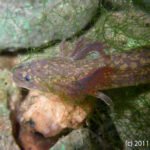Tumble - Science Podcast for Kids
A Common Sense Selection! Exploring stories of science discovery. Tumble is a science podcast created to be enjoyed by the entire family.
A Common Sense Selection! Exploring stories of science discovery. Tumble is a science podcast created to be enjoyed by the entire family.
 Episode One: The Mystery of the Barton Springs Salamander with Dr. Hayley Gillespie
Episode One: The Mystery of the Barton Springs Salamander with Dr. Hayley GillespieCreated by: Tumble Media
Started: February 24th, 2015
Status: Active, 281 episodes
Kind: Episodic
Language: English

<a href="https://soundcarrot.com/shows/shows/tumble-science-podcast-for-kids/page/12/" title="SoundCarrot.com - Children's podcasts"><img src="https://soundcarrot.com/img/sc-sm.png" alt="Listen On SoundCarrot" style="width: 200px; height: auto" /></a>When you have to go, where does it go? That’s what our listener Ellie wants to know. Prepare for potty humor and science as we hear from civil engineer and toilet expert Francis de los Reyes! Who invented the toilet? And what’s “The Great Stink?” We’ll be plunging into the past, present, and future of flushing to discover how toilets don’t just save us from stinky smells – they save lives.
Ever wonder what a mummy smells like? Or why millions of animals were mummified – including baboons? We climb into ancient tombs with Egyptologist Salima Ikram, to discover the science and culture of animal mummies. Salima is a real life tomb adventurer, cautious of scorpions and curious about the dead. Join us this Halloween as we excavate the secrets behind mummies!
If there’s too much gas in the atmosphere, who you gonna call? Gas Busters! Find out how a bacteria from a rabbit’s gut could help fight climate change, in our final episode of Life Lab.
Spider silk? Mushroom leather? Discover what’s next in fashion: Clothes made from synthetic biology. We hear the story of how a synthetic biologist went from collecting spiders in his bedroom to working with some of the biggest names in fashion.
So far in Life Lab, we’ve uncovered the power of synthetic biology. But with great power comes great responsibility! In this episode, we’ll ask “Is this a good idea?” when it comes to changing the DNA of mosquitoes to fight a deadly virus.
Should we make the move to Mars? And how would we live there? Join us as we pack our bags for Mars with the help of synthetic biology. We’ll find out how astronauts could grow their own food, medicine, and even building materials on the Red Planet. But when Lindsay and Marshall start to disagree about moving to another planet, some tricky questions threaten the mission…
What does cheese have to do with technology? What does engineering have to do with biology? And why should we know about it? We’ll slice into these questions to get a taste of what synthetic biology is, how it’s already in our lives, and how it got there.
Season 8 of Tumble begins September 16 with a special, five-part series called “Life Lab.” Life Lab will explore the incredible power of a new technology you probably haven’t heard of. This technology could solve some of the biggest challenges on our planet, and beyond. But with great power, comes great responsibility. We’ll be asking important questions about whether it could – or should – change our future.
Created by: Tumble Media
Started:
February 24th, 2015
Status: Active, 281 episodes
Kind: Episodic
Language: English
When Chloe is sent off to live with her mysterious and eccentric grandmother she learns an unbelievable secret. Grandma Ivy is none other than Mother Nature herself! And Chloe is next in line to assume to the power and responsibility of the job. Can a twelve-year old learn to balance the entire world’s ecosystem while just trying to fit in at her new school? Only Mother Nature knows.
Find your next favourite Podcast
Sound Carrot is your source for Family Podcast Discovery. Verified awesome, 0% boring.
Privacy Focused
Distraction free website, no flashing banners or adverts to steal your attention.
(Some shows do contain their own ads however).
Kid verified
At first I made this site for my kids, but like any dad I got a little over excited. I hope you find it as useful as they do.
Whether you want to listen to them together in the car, or alone in your room - the content is all safe for younger ears.